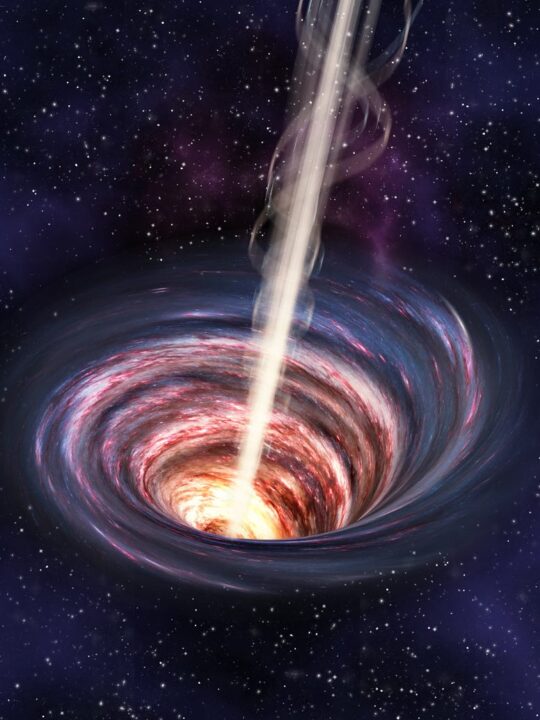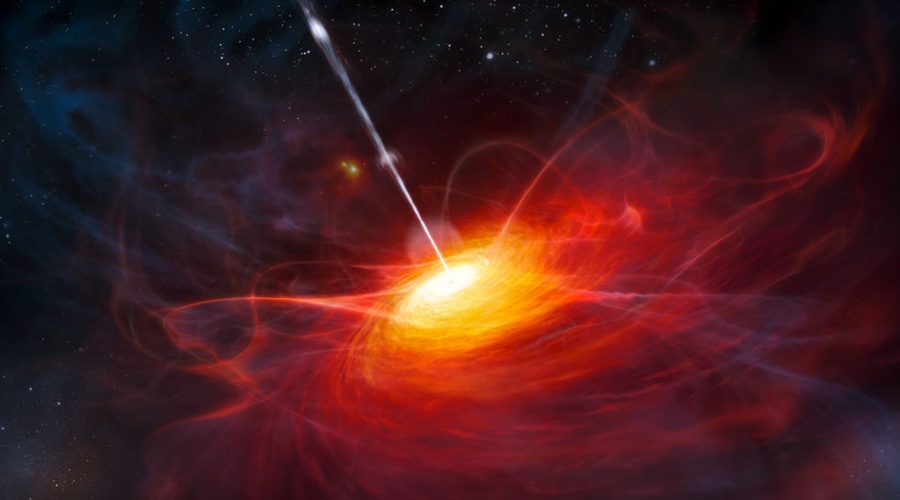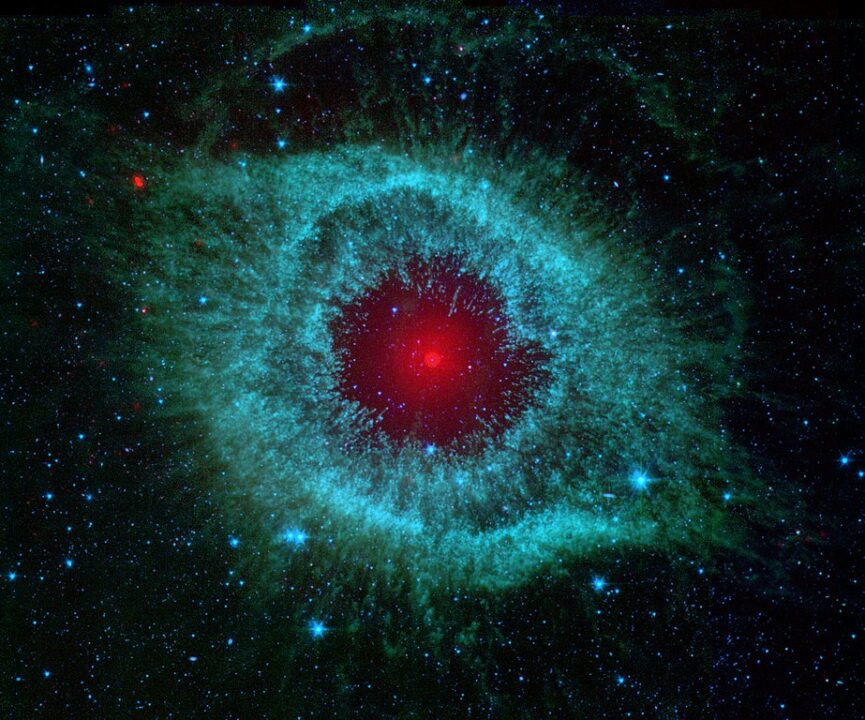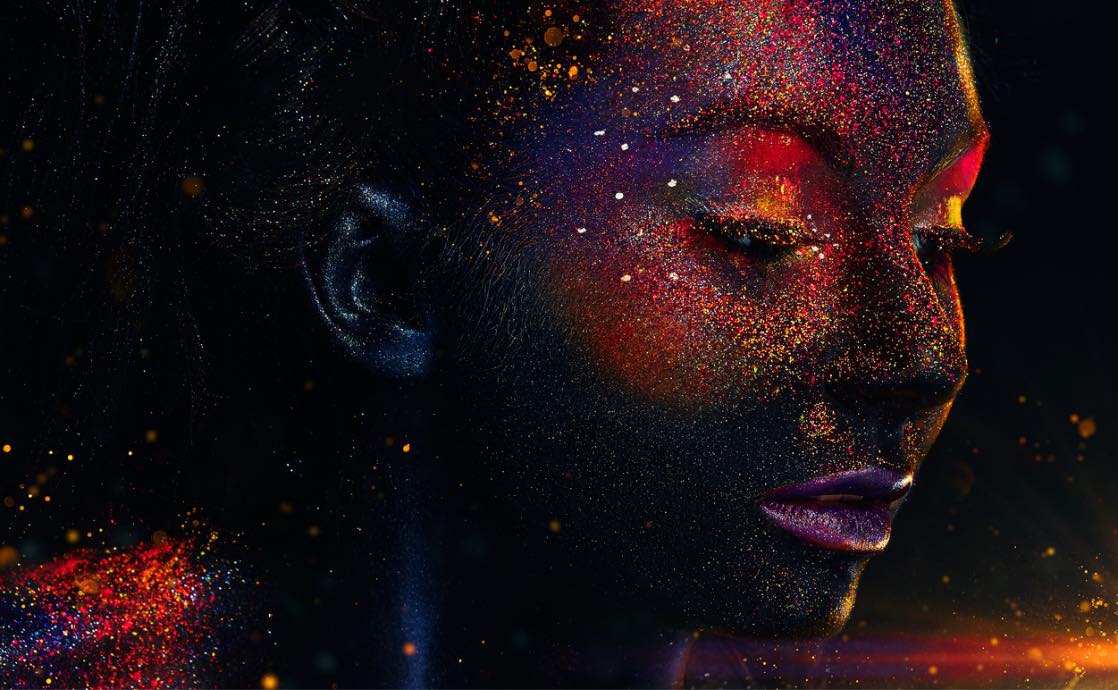The views expressed in our content reflect individual perspectives and do not represent the authoritative views of the Baha'i Faith.
Little Girl: And me, I imagine myself a giantess, so tall I rise above the canopy of any atmosphere like helium. I’m so light but have been trapped underground — but if I could have one thing that could never be, I’d become this giant. And I’d be so tall, that when I took a step backward, I’d cut through time as we know it — this linear progression, I would eschew and I’d go back to each of these moments in Stop 6 and engulf, enwrap, and enshrine myself — the most giant part of me around these girls, so no one could ever hurt them — and they’d be buried like me in the earth, like helium, trapped beneath the ground abundant, but too light to keep down, so we buried it. And I’d hold them so they would be safe, and I would protect them from the harm and violence.
That’s my wish. That’s my imagination. I have the geographical coordinates. I know exactly where to go — and my steps would be deliberate. Because I wouldn’t care what cataclysmic effect ‘changing the past’ would have. I would show one little woman in this legacy of extreme and unmitigated sexual violence that she was worth protecting, even if it meant sacrificing the world — because ‘every child is potentially the light of the world’ and when you are born into a black hole, how can you shine? It must be magic, it must be magic, it must be magic because look at my daughters shining — physicists and cosmologists insist nothing can escape a black hole, ha! I dare them to understand the social reality of a neighborhood of Breedloves and claim that same theory.
That’s an excerpt from Dr. Toya Mary Okonkwo’s play entitled, “Our Real Life Pecolas and Oguu Chases the Sun from Collapsing Stars to Quasars: A Cosmic Play in Three Acts — The Importance of Igbo Storytelling in Expanding Black Girlhood Imaginations as Resistance to Social Erasure in Stop Six, TX.” In her play, she blends “the creative power of performance and visual storytelling to explore the subject of #blackgirlmagic as it relates to astrophysics and the neurobiology of transcending the confines of trauma.”

RELATED: How One Playwright Is Honoring Black Girlhood Stories
As Toya interviewed many Black women in preparation for her play, she learned about the suffering they experienced from their traumatic girlhoods in Stop Six, Texas. Although their pain was deep enough to ensnare them in a “dark place,” their radiant resilience makes their station luminous.
Man, however, hath a twofold station: one luminous, the other dark; one pertaining to the realm of the Divine, the other to the world of nature; one inclined towards heavenly virtues, the other towards satanic qualities. For man standeth on the demarcation line between light and darkness. In the circle of existence, he is situated at the lowest point, which marketh at once the end of the arc of descent and the beginning of the arc of ascent.
For this reason, he is free to move in either direction: towards light or darkness, towards ignorance or guidance—depending on the one that prevaileth. Should the rational faculty prevail, man would shine radiantly and occupy a lofty station in the realms on high. And should the self and the lower nature prevail, the result would be darkness and he would fall into the nethermost fire. For in man the powers of the heavenly Kingdom and the forces of his animal nature are at war until one or the other doth triumph. The Glory of Glories rest upon thee.
Using the metaphor of stars, black holes, and quasars, Toya helps us gain a deeper understanding of the magical spiritual power and light of Black women and girls in this interview.
Radiance Talley: Hi Toya, what role does trauma play in pushing Black girls and women to become luminaries of the universe?
Dr. Toya Mary Okonkwo: Black holes are considered one of the most intriguing and inexplicable phenomena as they are essentially “places” in the universe with such immense gravitational pull that no known speed can escape them. There are varying types of black holes, like stellar mass and supermassive, but the general idea is that a celestial body, most likely a star, at some point, collapsed in on itself and the mass of the star condensed into a size so small it creates a singularity — which is the center of the black hole — the gravitational pull of the singularity radiates out to a point called the event horizon. Black holes are considered a one-way trip because once an object or particle crosses the event horizon, it will not be able to escape the black hole. Even light itself (which travels at a speed of 300,000km/sec) cannot escape because the gravitational pull of the singularity is too great.
This is what it can feel like to be a Black woman whose girlhood is marred by intense and enduring trauma — your own and multigenerational — inescapable like the recesses of a black hole. Thus, we see this neighborhood I originally imagined as a hidden utopia, akin to my World of Conception, as a place where stars are being sent, but they keep collapsing under the weight of the levels of trauma and as they collapse they become these black holes with no escape velocity and no model of transforming. Act 3 is named Quasars, because while black holes are considered to be some of the most menacing of cosmological events, the gravitational pull they exert actually has been observed to attract particles and dust and universe matter to the outer perimeter of the event horizon.

Radiance: For those who are not as well versed in astrophysics as you, can you define what a quasar is?
Toya: In the 1950s, astronomers discovered quasars (quasi-stellar objects), which have been identified as the most luminous thing in the universe. As cosmological matter and particles are attracted to the accretion disk of the supermassive black hole, they begin to orbit the event horizon before eventually falling in. These particles orbit at velocities approaching the speed of light, which translates to them giving off energy and creating light — the quasar. They appear to be star-like in the sky but are not actually stars like our sun. As material from this disk falls inwards, some quasars have been observed to fire off super-fast jets into the surrounding space.
Quasars are capable of emitting hundreds or even thousands of times the entire energy output of our galaxy, making them some of the most luminous and energetic objects in the entire universe.
Knowing that a supermassive black hole actually has the potential to become the most luminous thing in the universe, I was immediately filled with hope of redeeming the fallen and dying stars of Black girlhood in Stop Six. Act III takes up this challenge by engaging in speculative and imaginative alternatives for the stories the women told. In Act II, the Little Girls of Act I are downtrodden but discover an imaginative way to help the women of Act II tap into what has been there all along.

Radiance: Can you explain how Black women and girls can become quasars?
Toya: Black [women and] girls become quasars by recognizing when and how we stand on the cusp, a knife’s edge, of a supermassive black hole, a place with no known escape velocity, even for light, and of a quasar — the most luminous thing in the universe. The idea here is that each of us can choose to face our luminosity or the side of ourselves that is filled with an absence of light — and this shows up not just in the big life decisions, but in our day-to-day interactions with others, but maybe more importantly in our daily interactions with ourselves! How we care and love for the parts of ourselves that have been neglected or deeply hurt – so we can heal and bring this type of loving and living kindness to others.
Toni Morrison has this excellent quote on the function of racism: “The function, the very serious function of racism is distraction. It keeps you from doing your work. It keeps you explaining, over and over again, your reason for being. Somebody says you have no language and you spend twenty years proving that you do. Somebody says your head isn’t shaped properly so you have scientists working on the fact that it is. Somebody says you have no art, so you dredge that up. Somebody says you have no kingdoms, so you dredge that up. None of this is necessary. There will always be one more thing.”
I think this quote also applies to sexism, ageism, most any other form of intersectional discrimination that Black girlhood comes up against. And so one way we become quasars is to develop our powers of imagination, as a form of resistance, to push our thoughts beyond the racism, sexism, etc. that we encounter on Earth, to figure out who we are when these forces of extraordinary darkness are not keeping us from our work — what is my purpose and my work when I’m not marred down by these things which seek to destroy me?
We become quasars by relying on the creative methodologies and ways of knowing that value art and community, and recognizing our spiritual reality and tenure on this planet as temporal.
Radiance: Yes, it’s so important to recognize our spiritual reality and understand that our physical reality, which is an illusion, is temporary. As you know, Baha’u’llah, the prophet and founder of the Baha’i Faith, compared people of African descent to “the black pupil of the eye surrounded by the white. In this black pupil is seen the reflection of that which is before it, and through it the light of the spirit shineth forth.”
Abdu’l-Baha, the son of Baha’u’llah and the authorized interpreter of the Baha’i writings, also wrote that the pupil of the eye “is the fount of light and the revealer of the contingent world.” He explained that, scientifically speaking, “the blackness of the pupil of the eye is due to its absorbing the rays of the sun, for if it were of another colour—say, uniformly white—it would not absorb these rays.” What role does this “fount of light” play in your vision of Black girls and women?
Toya: The pupil of the eye is literally a black hole. There seems to be an inextricable and intertwined relationship between something being black and something being full of light.
…The unity that Black girls need is also discovered internally. Unifying inherited and self-experienced tears in the fabric of our mortal life will produce luminous results that appear as bright as nearby stars. We achieve this unity spiritually, calling on the creative power of our imagination, rearranging our existence at the quantum level of possibilities. Banishing reliance on conventional ways of knowing and honoring that our beginning is ours to dream, imagine, create, and redeem. We are spiritual. We are light. We are stardust. When we unite the matter and the spirit, we will emit luminous light.

Radiance: Is there anything else that you would like to share that is important to this topic?
Toya: If we understand the physics of our reality, we have the power to bend, change, and re-imagine it. Escape velocity is another central theme in my play — what does it take to get away from the gravitational pull of any given mass? If you don’t know the EV for Earth, you cannot leave its orbit — so what of the EV for a neighborhood that has harmed you? What of the EV for an enduring legacy of oppression? What of the EV for unresolved trauma that has hijacked one’s sense of self? When we understand that these are important questions to consider, we can start to make incremental progress in our own journeys — and be part of exponential growth as a species and society.
















Comments
Sign in or create an account
Continue with Googleor